There are several advantages to maintaining the best indoor plants in India at home, but the ones we opt to keep at home should be chosen with maintenance needs in mind. Climate conditions vary greatly in India. Because of the various temperatures and geography, many species of common house plants require different care for development and survival.

As a result, in this list, you will find a variety of the best indoor plants for India that are appropriate for your home. And guess you find the required info on all of it from seed rakhi’s hampers as well, just saying!
Tulsi
Soil – Tulsi needs aerated, porous, well-drained soil with organic manure added. Plant roots do not like sticky, clay-like soil.
Light – Tulsi grows well in both full sun and partial sunlight.
Water – Tulsi plants require daily watering in the summer and every other day in the winter.
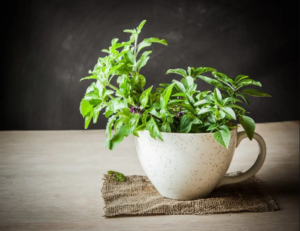
A Tulsi plant may be found in almost every Indian household, and it is a ritual that has been practiced faithfully for generations. Because the ancestors were aware of Tulsi’s healing virtues, they made it essential (back then) to grow in a household.
Tulsi has long been used to treat high blood pressure and high cholesterol, as well as asthma, headache, cold, sinusitis, cough, indigestion, cramps, gastrointestinal trouble, and ulcers. It is also thought to be effective in the treatment of arthritis and diabetes.
Snake Plant
Soil – They can survive in poor soil conditions, thus soil upkeep is not an issue.
Light – It can grow under any natural lighting: both low and bright.
Water – In the summer, there’s no need to water the snake plant every day. This is because the roots might decay fast. In the winter, water once every two months.
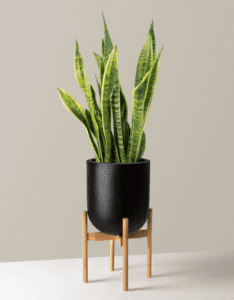
This plant, sometimes known as mother-in-law’s tongue, is prized for its tall, sword-like leaves with variegated hues of green. The yellow-cream line running across its edges completes the appearance. This plant is ideal for interior conditioning since it operates well even in low light conditions and cleans the air by absorbing various VOCs.
Money Plant (Devil’s Ivy)
Soil – Soil that drains effectively is required.
Light – It may survive in low-light conditions.
Water – Only water once a week.
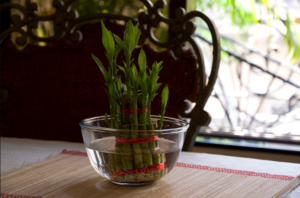
Lucky bamboo features thin stalks that mimic the genuine bamboo tree and is a symbol of good fortune and wealth. Although they are commonly cultivated in soil for lifespan, many gardeners plant them in a glass vase filled with water and stones as an aesthetic addition. This plant grows best in bright light, although it may also withstand dim light.
Lavender
Soil – Lavender grows best in low to moderately-rich soils, so don’t add organic matter to the soil before planting.
Light – Lavender should be given as much light as possible when grown indoors.
Water – After planting, water once or twice a week until the plants are established.
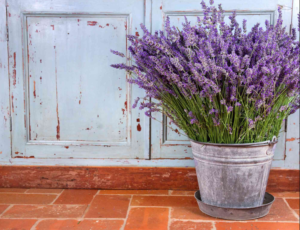
Full light and well-drained soil are essential for a healthy lavender plant. It is well-known for the essential oil obtained by distilling the flower spikes of some lavender species. This oil has both aesthetic and therapeutic use.
Lavender oil has antibacterial and anti-inflammatory qualities, which aid in the healing of burns and insect bites. Lavender oil can also help with stress, anxiety, despair, and sleeplessness. Lavender tea can also assist with nausea and digestive difficulties.
Areca Palm
Soil – Choose acidic soil to aid with adequate water drainage. You may also combine it with some builder’s sand. This prevents it from becoming clay-like.
Light – Areca palm thrives in low-light environments. As a result, you can select a location with some natural sunshine.
Water – Allowing water to sit in it will cause the roots to decay. Plus, you may use drinking water to avoid freckles on the leaves!
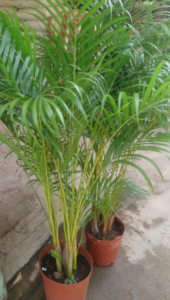
The Areca Palm is a large palm that works well as a houseplant. It’s a fast-growing plant that’s especially interesting in the spring and summer. This plant will transform any room in your home into a tropical paradise.
These plants look lovely inside the house. Because of their size, Areca palm indoor plants are commonly found in the corners of common areas in Indian households. They are large and luscious green, and they offer a significant decorative touch to the room.
Seed rakhi is one such place that cares about plant life and how plants are sustaining nature to balance the destruction caused by humans. Keep supporting the products of seed rakhi and getting information from the blogs of seed rakhi to make yourself aware of all the plant related info.

